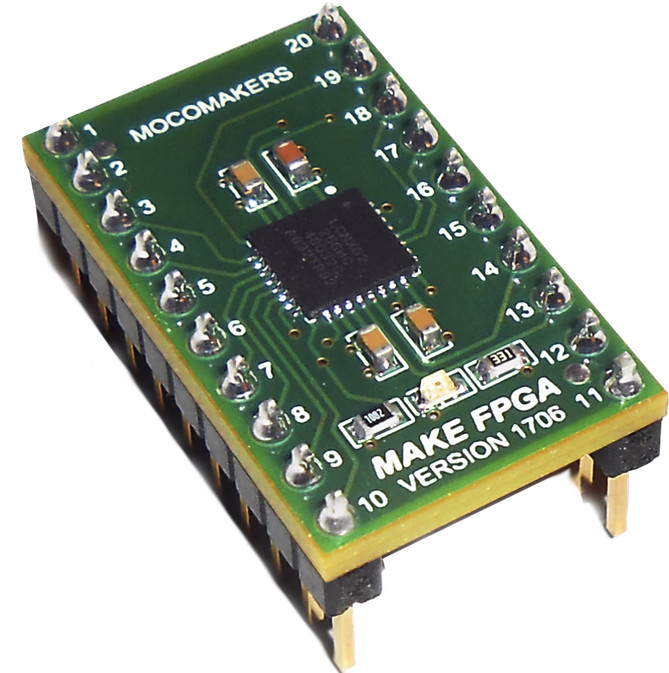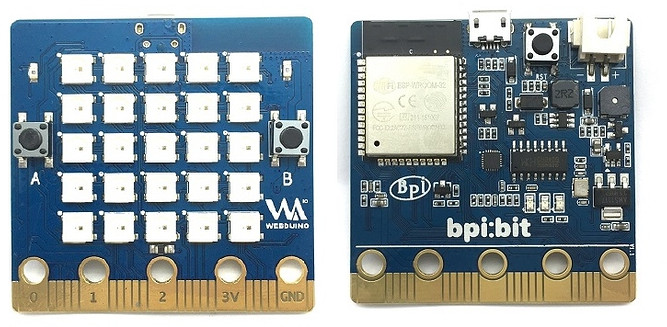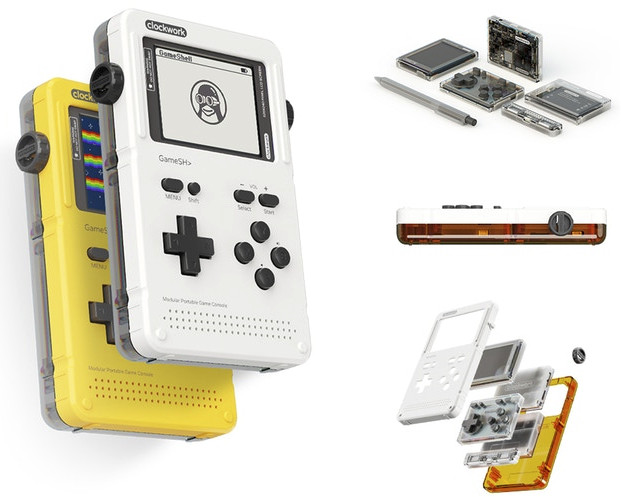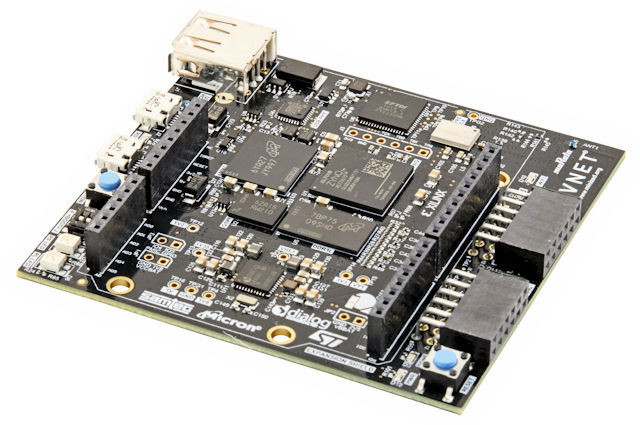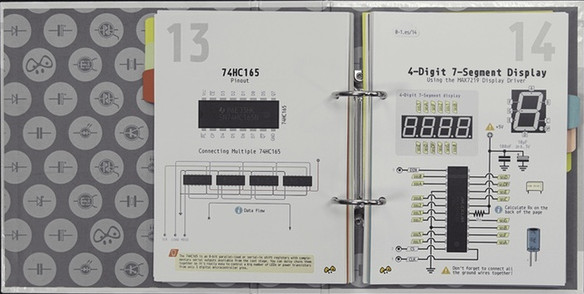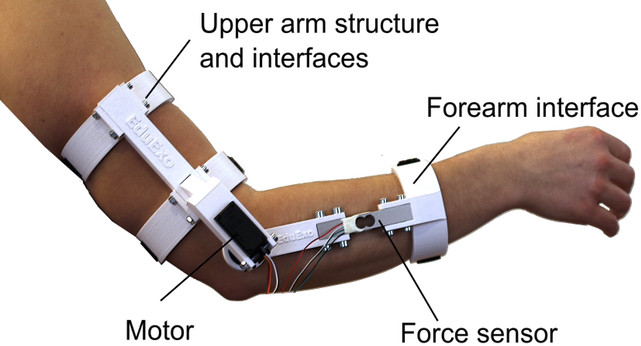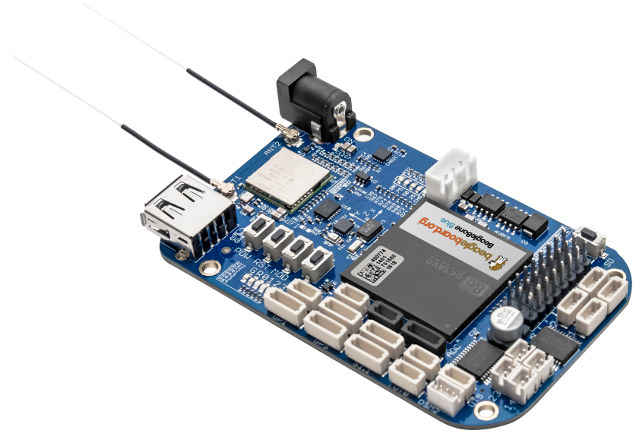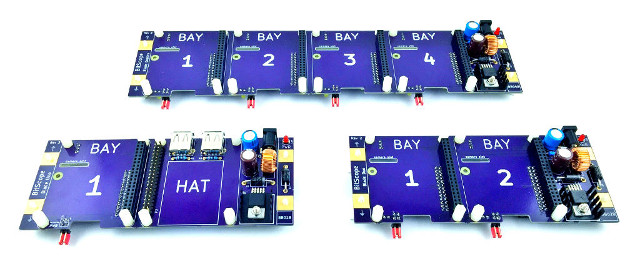We’ve already seen several cheap FPGA boards in the past with the $25 miniSpartan3 (Xilinx), $34 Spartixed (Xilinx), or 40 Euros Olimex iCE40HX8K-EVB boards (Lattice), but if you have a really tight budget you can now plat with FPGA for just $10 thanks to Fipsy board. With its 256 LUTs Lattice Semi MachXO2 FPGA, you’ll be limited to what you can do for specific projects, but it could be useful to teach yourself or students FPGA programming, especially it also happens to be breadboard-friendly. Fipsy specifications: FPGA – Lattice Semiconductors MachXO2 (LCMXO2-256HC-4SG32C) FPGA @ 269 MHz max. with 256 LUTs, 2 kbit Distributed RAM, 32 LABs (Logic Array Blocks) Programmable by SPI and I2C Expansion – 2x 10-pin header supporting various interfaces including: LVCMOS 3.3/2.5/1.8/1.5/1.2 LVTTL LVDS Bus-LVDS MLVDS RSDS LVPECL SSTL 25/18 HSTL 18 Schmitt trigger inputs, up to 0.5 V hysteresis Misc – Onboard LED Operating Supply Voltage – 3.3 […]
$19.50 BPI:bit ESP32 Board is Inspired by BBC Micro:bit, Compatible with Webduino and Arduino IDE
BBC micro:bit board for education was first unveiled in 2015, before starting to be given away to UK students, and later sold for about $19 in 2016. The board supports Bluetooth connectivity, includes an array of 25 LEDs, as well as a specific 20-pin edge connector also featuring 5 large holes (rings) for 3 I/Os and power. So far I had not seen any clones or alternative boards inspired from the design, as we see for Arduino or Raspberry Pi boards. But SinoVoIP (Banana Pi) has changed that with their BPI:bit clearly inspired from the Micro:bit, but offering both WiFi and Bluetooth connectivity via an ESP32 module. Hardware specifications: Wireless module – ESP-WROOM-32 module with WiFi and Bluetooth LE connectivity LEDs – 25x RGB LED array Sensors – 2x light sensors, thermistor, 9-axis accelerometer / gyroscope / compass (MPU-9250) Expansion – 3 digital/analog I/O rings, 3V/GND ring, 20-pin edge connector […]
Gameshell Portable Retro Gaming Console Features Clockwork Pi Allwinner R16 Board (Crowdfunding)
Allwinner R16 with its lowly four Cortex A7 cores and Mali-400MP2 GPU would not normally come to mind when designing a gaming console. But Nintendo used the R16 processor twice in their retro gaming consoles: NES Classic and SNES Classic Edition. Clockwork, a startup based in Hangzhou, China, decided they could also do gaming console with the processor: Gameshell. But their product is quite different, as it’s both a portable console with 2.7″ display, and a development platform with the console based on Clockwork Pi development board, and an Atmel AVR (Arduino) based keypad board. Gameshell specifications: Clockwork Pi development board SoC – Alwinner R16-J quad core Cortex A7 processor @ 1.2 GHz with Mali-400MP2 GPU System Memory – 512MB or 1GB (in future revision of the board) Storage – 1x micro SDHC slot Video Output / Display I/F – 18-bit RGB display interface, micro HDMI (planned in revision of […]
$89 MiniZed Development Board based on Xilinx Zynq Z-7007S SoC Includes WiFi, Bluetooth, Arduino Headers
Avnet has unveiled MiniZed development board – part of ZedBoard family – powered by a Xilinx Zynq Z-7007s SoC with an ARM Cortex A9 processor and FPGA fabric, supporting WiFi and Bluetooth connectivity, and equipped with Arduino and PMOD headers. MiniZed board (AES-MINIZED-7Z007-G) specifications: SoC – Xilinx Zynq-7007S single ARM Cortex A9 processor up to 677 MHz + FPGA with 23K logic cells, 1.8 Mb block RAM, 60 DSP slices System Memory – 512 MB DDR3L Storage – 8 GB eMMC flash, 128 Mbit QSPI flash Connectivity – Wi-Fi 802.11b/g/n and Bluetooth 4.1 plus EDR and BLE via Murata “Type 1DX” wireless module USB – 1x USB 2.0 host port Sensors – 3-axis accelerator and temperature sensor (LIS2DS12); Digital Microphone (MP34DT05) Expansion Interfaces: 2x Pmod compatible connectors with 16x GPIOs Arduino UNO R3 compatible header with 22x GPIOs Debugging – JTAG and serial console via micro USB port Misc – 2x […]
ABC: Basic Connections is a Book Listing Common Circuit Diagrams for Arduino Boards (Crowdfunding)
PighiXXX is known for their very useful and pretty pinout diagrams, but they’ve now created a book called “ABC: Basic Connections” comprised of a collection of easy to read circuit diagrams that shows you how to connect various circuits to your Arduino compatible board. The book is in file folder format, so you can easily remove the sheets you need during your project. While you can normally find pretty much whatever circuits you need on the Internet, ABC book’s diagrams looks very neat, and since it comes with 100 A5 pages of circuit diagrams such as LEDs, decoders, shift registers, 7-segment displays, mux/demux, light bulbs, DC motors, solenoids, relays and so on, you may discover circuits you did not know you needed. Every page of the book also comes with a 0-1.es/xx short URL redirecting to an online tutorial for the circuit with information about the theory, component list, tips, […]
EduExo DIY Robotic Exoskeleton Kit is Arduino Powered, 3D Printable, Designed for STEM Education (Crowdfunding)
Robotic exoskeletons are used for medical purposes such as helping with the rehabilitation of stroke patients, or enable paraplegics to walk again, as well as in the work place to assist people lifting heavy objects. While it’s possible to learn about the theory about exoskeleton technology, practical experience may help grasping all concepts better. However, there are not many courses available, and exoskeletons are usually expensive, so Volker Bartenbach, PhD at ETH in Zürich, has decided to created EduExo robotic exoskeleton kit for education purpose. The EduExo hardware is based on off-the-shelf components like an Arduino UNO board, a motor, and a force sensor, as well as a rigid exoskeleton structure and cuff interfaces. The latter is optional as you can get the kit without it, and will instead receive the STL files to 3D print the parts yourself. There’s also a handbook to help you get started in several […]
$80 BeagleBone Blue Board Targets Robots & Drones, Robotics Education
Last year, we reported that BeagleBoard.org was working with the University of California San Diego on BeagleBone Blue board for robotics educational kits such as EduMiP self-balancing robot, and EduRover four wheel robot. The board has finally launched, so we know the full details, and it can be purchased for about $80 on Mouser, Element14 or Arrow websites. BeagleBone Blue specifications: SiP (System-in-Package) – Octavo Systems OSD3358 with TI Sitara AM3358 ARM Cortex-A8 processor @ up to 1 GHz, 2×32-bit 200-MHz programmable real-time units (PRUs), PowerVR SGX530 GPU, PMIC, and 512MB DDR3 Storage – 4GB eMMC flash, micro SD slot Connectivity – WiFi 802.11 b/g/n, Bluetooth 4.1 LE (TI Wilink 8) with two antennas USB – 1x USB 2.0 client and host port Sensors – 9 axis IMU, barometer Expansion Motor control – 8x 6V servo out, 4x DC motor out, 4x quadrature encoder in Other interfaces – GPIOs, 5x UARTs, 2x […]
BitScope Blade Industrial Mounting & Power Systems Support Up to 40 Raspberry Pi Boards
BitScope Designs, a manufacturer of embedded mixed signal test, measurement and data acquisition systems, has announced the launch of a new models of their industrial desktop, rack or wall mountable power and mounting power systems with BitScope Blade Uno, Duo, and Quattro supporting respectively 1, 2 and 4 Raspberry Pi 3/2/B+/A+ boards. The blades can also be mounted in a 19″ rack with up to 40 Raspberry Pi boards. The three systems share many of the same specifications: Power Supply Unregulated 9V to 48V DC power, compatible with most 12V & 24V UPS, most DC solar power systems 4A (peak) switch mode supply built-in 2.1mm socket or industrial power tabs Can be used with low cost passive PoE, Can power external USB, HDD & SSD 5V auxiliary power for example for Pi Display Expansion& I/O ports Full access to RPi’s I2C, SPI, UART & most GPIO Slot for camera connector […]


